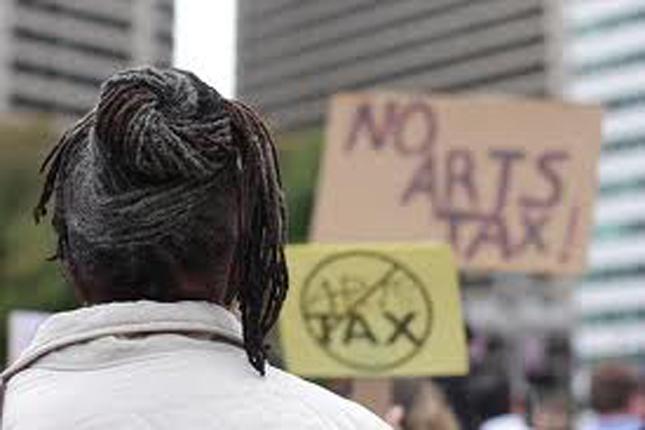Mayor Vincent Gray, who has presented himself as a big supporter of the arts, has nonetheless seen fit to include a six percent ticket tax on all ticketed arts events in the District of Columbia as part of his 2012 District of Columbia budget proposal he sent to the city council.
That includes, we presume, all live performances and arts events throughout the District at any venue holding ticketed arts events and performances. While it’s as yet unclear as to what this includes, it likely encompasses major venues like the Kennedy Center, all of the District’s theater groups (Arena Stage, Source Theater, etc.), its dance groups and any ticketed music. Does it include theater and performance events held in schools, museums and churches?
But in short: If you’re buying, you’re paying the 6% tax.
Washington’s arts and theater community such as the Helen Hayes Awards, Cultural Tourism DC and the Cultural Development Corporation have mounted campaigns to stop this from happening.
The proposal, which becomes part of the Fiscal Year 2012 budget unless the council disapproves or eliminates it, comes in a climate that’s been difficult for the nonprofit arts and cultural community, which has seen corporate giving decline and grants from state and federal government sources cut heavily. Especially at the federal government level, tea party mania to reduce government size and spending has hurt the arts throughout the country.
The Helen Hayes Awards has argued against the proposal, arguing it would reduce the number of theater patrons facing choices on spending, which in turn would endanger arts organizations heavily dependent on ticket income.
Fewer theater and performance patrons means fewer patrons for Washington’s large restaurant community, which has drawn heavily from those patrons. If people stop eating out, the District would actually lose money from the loss of anticipated restaurant tax income.
We could not disagree more with the proposed tax, of which the income generated to aid the District’s budget deficit would be negligible. This proposal could indeed damage the performing arts in Washington, and especially its smaller theater and dance groups—not to mention arts education in the schools.
Mayor Gray probably cares about the arts in the District, but this tough love for the arts community, which generates positive tourist income and a highly respected reputation, is not the right cut to make.
While cultural institutions have benefited mightily from the Meads, the Kogods and the Harmans of our community, this sort of thing from the local government seems to be part of a prevailing national mood: When times are tough and the economy is bad, why miss an opportunity to make the arts community take a hit?
I’m sure its not the intention of DC government to do such a thing, but the tax proposal echoes more sinister cuts and outcries from the conservative GOP stalwarts who would like nothing better than to see the government out of the grant business for the arts, and would love nothing more than to eliminate Public Broadcasting, NPR and support for art exhibitions and performance pieces they detest or don’t understand.
This kind of anti-intellectualism has always been a part of the American cultural mosaic in some way or another. What do the arts do here in DC besides bring in tons of tourists?
In hard times like these, they lift our spirits. They provoke us to think and imagine when we most need to, reminding us of the lofty flights of achievement of which we are capable. In the arts, both high and popular, we find reflections of our better angels and our inner selves. We find beauty amid economic struggle. We find created beauty and poetry.
In the 1930s, in the worst times this country had experienced, the government, far from cutting support for the arts, created programs that enlisted poets, playwrights, actors, painters, sculptors and educators to create works of art that became shared experiences for We The People. Evidence of that national spirit, presided over by President Roosevelt, can be found in memoirs, in collective memories, stories, novels, paintings, films, compositions and plays from that era that amount to a kind of golden age. Governments did not hike taxes on ticket prices to movies, to plays or to concerts. You could make a fair argument that because the arts were so accessible to even the poorest, the national psyche weathered the debilitating effects of daily life in hard times.
If you want to voice your opposition directly to the ticket sales tax, you can go to the Helen Hayes Awards website, which includes a petition, an opposition letter template and information on the tax and its effects. Visit HelenHayes.org.
The council is slated to hold final votes on the budget May 26.


